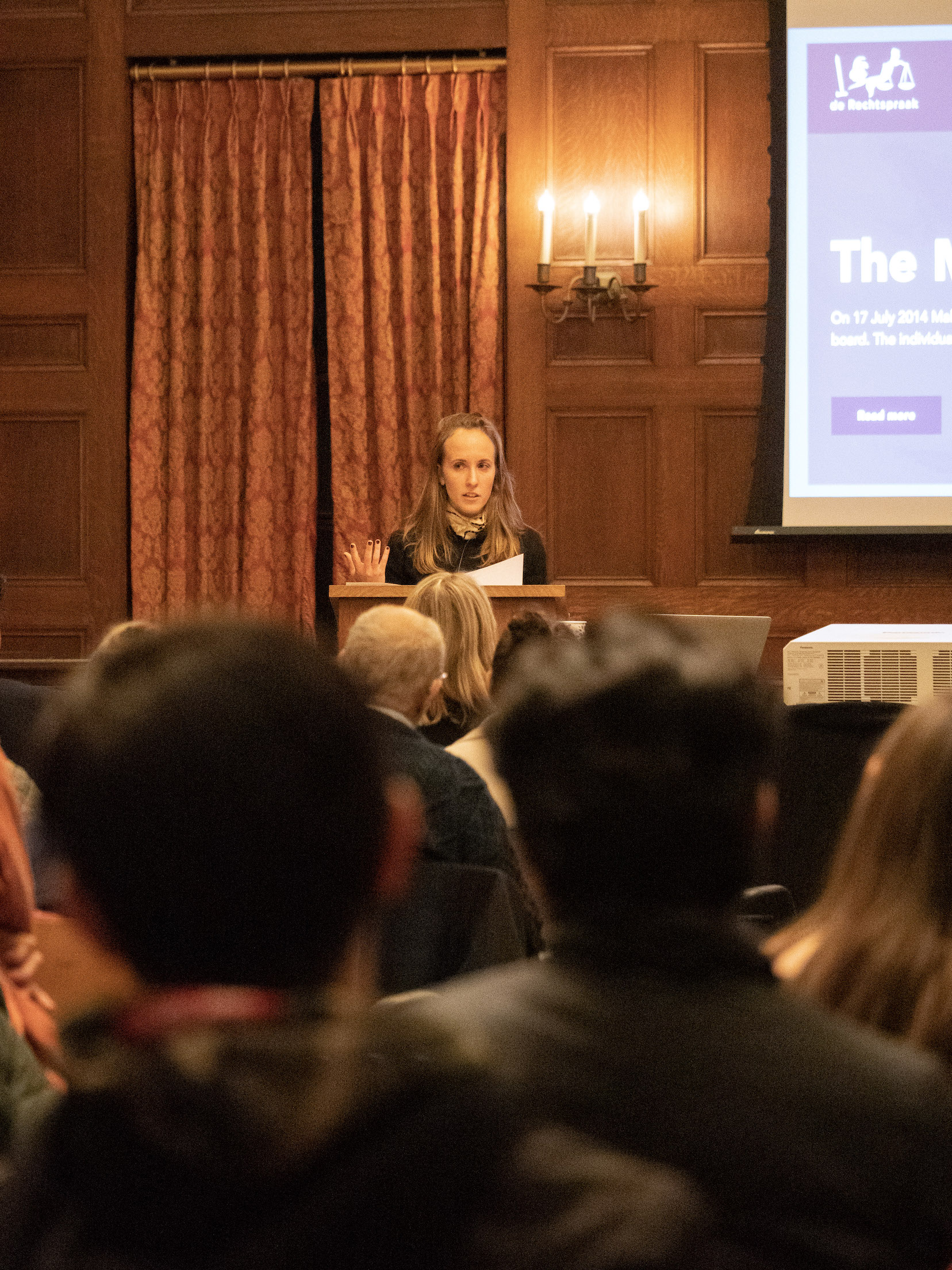Kinstler ’13 talks repairing the wrongdoings of war
November 18, 2022
 Alex Spear
Alex SpearEditor’s Note November 18, 2022 at 8:52 p.m.: An earlier version of this article used the word “vindicated” meaning “to justify and to clear something from criticism.” That was not the intended meaning of that sentence as it did not represent the meaning of the event discussed. Instead, this article has been updated with “redressed,” meaning “to bring justice to,” in its place.
Speaking on the avenues by which legislative and criminal justice have historically been achieved following wartime, Linda Kinstler ’13, a journalist, scholar and author, joined the Department of Russian, the Department of Government and Legal Studies and students yesterday evening to explore memory and justice in the war on Ukraine. During her talk, Kinstler highlighted ways in which Russia’s war crimes against Ukraine may eventually be redressed.
The lecture comes on the heels of several of Kinstler’s projects which approach the topic of how to repair the atrocities of wartime. Her first book, “Come to This Court and Cry: How the Holocaust Ends,” was published this August and explores the ways justice was sought following the war crimes of World War II. In her lecture, Kinstler used this historical context to delineate roads to justice in this critical moment.
“We’re at an interesting moment, I think, in which we are revisiting the failures of previous attempts at justice, and trying to determine whether they might work or whether we have to try something new, and, if so, trying to figure out as fast as we can what that new thing might be,” Kinstler said.
Kinstler explained that Ukrainians have brought to the surface some of the past failures to achieve justice for war crimes. In their pleas for fair, transparent and effective justice for Russia’s war crimes, Ukrainians have circulated the history of Russia’s corrupt trials against German perpetrators during World War II.
“Each defendant was assigned a lawyer, yet the proceedings were vigorously controlled and some of the verdicts had been prepared in advance. Sometimes these trials took fewer than 24 hours from testimonies to execution,” Kinstler said.
After addressing some of the past failures at post-wartime justice, Kinstler discussed the importance of vehicles for justice which go beyond the walls of the courtroom. One of the initiatives Kinstler mentioned aims to secure future justice for Russia’s war crimes by training journalists to follow proper procedures for collecting evidence for a court of law while reporting in the field.
“They’re taking a two-pronged approach. The first is to collect testimony to be used in legal proceedings, and the second is to publicly spread these narratives that they’re collecting, whether it be through journalism, film or media,” Kinstler said. “The thinking is that you can’t win by only going to the courts, or only going to the public, but to secure a consensus about what happened, you really have to do both, and you have to do it all the time.”
Kinstler, whose family roots lie in Eastern Europe, has gained firsthand insight into the Russian-Ukrainian conflict through her journalistic fieldwork in Ukraine. She has been consistently visiting Ukraine to continue her work since 2014.
“I was sent [to Ukraine] to cover the aftermath of the Maidan Revolution, and that was extremely formative for me … and then every time I would go back after that, I would be able to discern how things changed,” Kinstler said in an interview with the Orient.
The event ended with a Q&A, where several attendees expressed their thoughts and inquiries as to what the rest of the war would bring and what forms justice might take. Attendees reflected on the night by expressing admiration for Kinstler and a new understanding of the war’s complexities.
“I thought it was a brilliant and extended meditation on these perennial conundrums surrounding justice in war crimes and historical memory,” Associate Professor of Government Jeffrey Selinger said. “I think she eloquently and rigorously presented the ways in which these deeply challenging questions re-emerge and articulate themselves in new forms, especially in this age of social media and post-truth politics and disinformation.”

Comments
Before submitting a comment, please review our comment policy. Some key points from the policy: